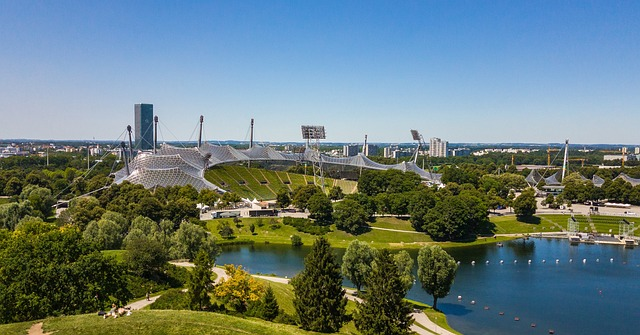Search This Blog
An Environmental website whose primary focus is to help everyone understand the impact humans have on the physical environment with resources that help us achieve what we call a safe and clean environment.
Featured
- Get link
- X
- Other Apps
Building a Sustainable Future: The Rise of Green Cities
In recent years, there has been a growing global movement towards building greener cities. As the world faces increasing environmental challenges, urban areas are taking proactive steps to transform themselves into sustainable and eco-friendly hubs. These "green cities" are implementing innovative strategies to address issues such as pollution, climate change, and resource depletion. In this article, we will explore the concept of green cities and showcase an inspiring example of a city that is leading the way in creating a sustainable future.
Located on the picturesque coast of Country X, EcoMetropolis stands as a shining example of a green city in action. With a population of over a million residents, this metropolis has embraced sustainability as a core principle for its urban development. Let's delve into some of the key initiatives that have turned EcoMetropolis into a model for other cities to emulate.
1. Renewable Energy Revolution:
EcoMetropolis has harnessed the power of renewable energy sources to significantly reduce its carbon footprint. The city has invested heavily in solar and wind energy, installing solar panels on rooftops, along highways, and in public spaces. Wind turbines strategically positioned throughout the city generate clean electricity, contributing to the city's goal of achieving 100% renewable energy by 2030.
2. Smart Urban Planning:
The city planners in EcoMetropolis have embraced a holistic approach to urban design. The city's infrastructure is carefully designed to prioritize pedestrians, cyclists, and public transportation over private vehicles. Extensive bike lanes, walkable streets, and a well-connected public transit system have encouraged residents to adopt sustainable modes of transportation. Green spaces and parks are plentiful, providing natural respite and improving air quality.
3. Waste Management and Recycling:
EcoMetropolis has implemented a comprehensive waste management system aimed at reducing waste generation and maximizing recycling. The city has deployed smart bins equipped with sensors that optimize waste collection routes and minimize truck emissions. Additionally, an extensive network of recycling centers and composting facilities ensures that waste is diverted from landfills, promoting a circular economy.
4. Urban Farming and Green Spaces:
EcoMetropolis boasts a flourishing urban farming movement. Rooftop gardens, community allotments, and vertical farms are integrated into the urban landscape, promoting local food production and reducing the city's reliance on long-distance food transportation. These green spaces not only provide fresh produce but also improve air quality, mitigate the urban heat island effect, and foster a sense of community.
5. Innovative Water Management:
Recognizing the importance of water conservation, EcoMetropolis has implemented cutting-edge water management systems. Rainwater harvesting techniques are employed throughout the city, capturing and storing rainwater for various purposes, such as irrigation and non-potable uses. Advanced wastewater treatment plants ensure that water is recycled and reused, reducing strain on freshwater sources.
Conclusion:
EcoMetropolis serves as an inspiring testament to the potential of green cities. By adopting sustainable practices and embracing innovation, this metropolis has created a thriving urban environment that prioritizes the well-being of its residents and the planet. As more cities worldwide strive to address the challenges of climate change and resource scarcity, the success of EcoMetropolis offers valuable lessons and serves as a beacon of hope for a sustainable future.
- Get link
- X
- Other Apps
Popular Posts
Environmentally Persistent Pharmaceutical Pollutants (EPPPs): A Growing Threat to Our Ecosystems
- Get link
- X
- Other Apps
Circular Economy Important Websites You Should Look At
- Get link
- X
- Other Apps






Comments
Post a Comment